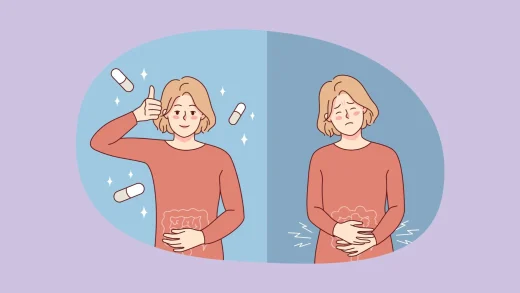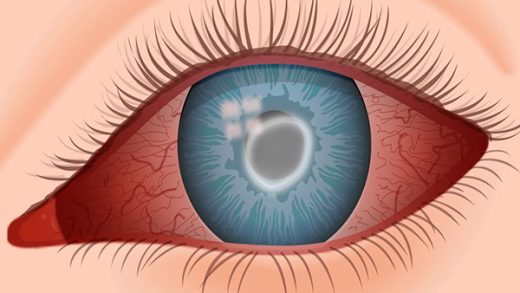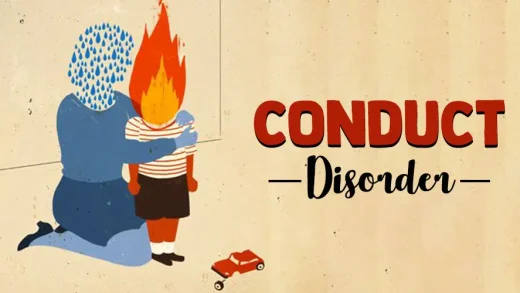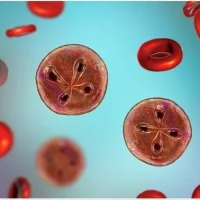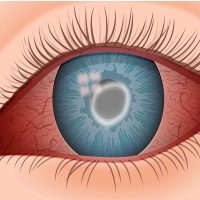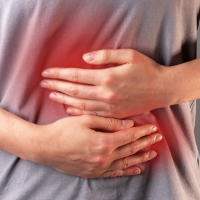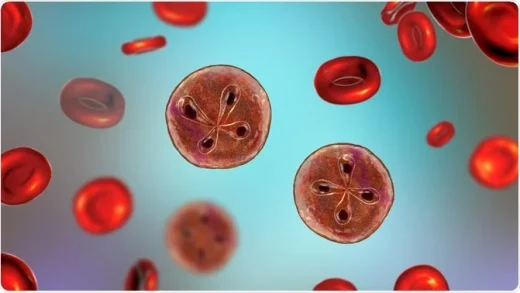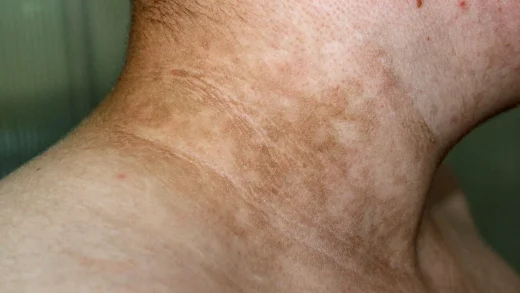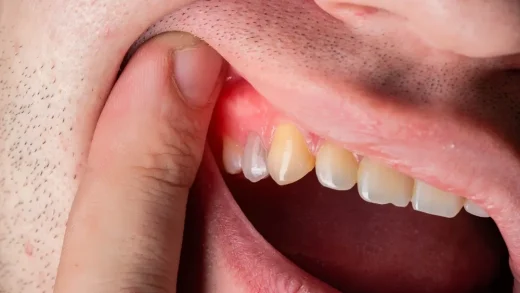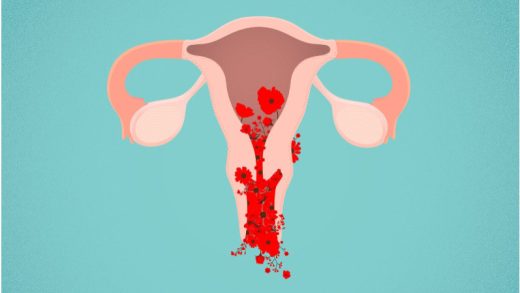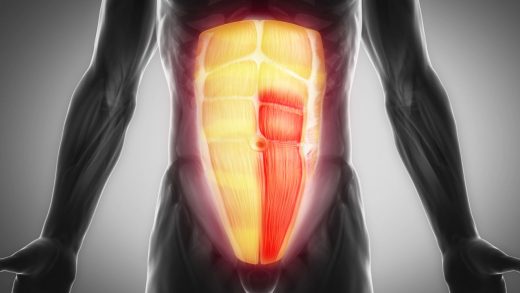What are abdominal adhesions?
Bands of scar tissue that develop between your pelvic and abdominal organs are called abdominal adhesions. They mostly grow in the spaces between your small intestine’s loops. They may also develop between the wall of your abdominal cavity and an organ.
Your abdominal cavity contains your:
- Digestive system, including your stomach and intestines.
- Female reproductive organs.
- Kidneys and adrenal glands.
- Liver.
- Pancreas.
- Spleen.
Adhesions happen when your abdomen is injured or inflamed. In the course of surgery, they may even form from routine handling. Actually, they most frequently occur following abdominal surgery. Scar tissue grows spontaneously during the healing process, which may lead to tissues stiffening and adhering to one another.
How common are abdominal adhesions?
The most frequent side effect of abdominal surgery is abdominal adhesions. After abdominal surgery, adhesions develop in most cases. But unless they are exhibiting symptoms, the majority of people do not require treatment.
Additionally, adhesions are the most frequent reason for small bowel obstructions. A medical emergency involving a partial or total blockage of the intestines is called a bowel obstruction.
Symptoms and Causes
What are the symptoms of abdominal adhesions?
The majority of adhesions are asymptomatic. However, abdominal adhesions can occasionally cause your intestines to twist, much like a kinked garden hose. This can result in a small bowel obstruction and happen soon after surgery or even years later.
Food, drink, air, and waste cannot pass through your intestines when there is an obstruction. You might experience symptoms like:
- Severe abdominal pain.
- Cramping.
- Bloating.
- Nausea and vomiting.
- Abdominal distension (when your abdomen swells outward).
- Obstipation (being unable to pass gas or poop).
Get to an emergency room (ER) immediately if you’re experiencing symptoms of a small bowel obstruction. It can be life-threatening without emergency care.
What causes abdominal adhesions?
After your body heals damaged tissue within your abdominal cavity, abdominal adhesions develop. They resemble internal wounds. Your immune system will cause inflammation to repair any damaged organs or tissues inside your abdominal cavity. Scar tissue is created by the injured tissue during the healing process.
Adhesions in your abdomen do not fade or peel away like the scars on your knee do. Rather, broken surfaces may adhere to one another.
Around 75% of adhesions that are diagnosed arise from abdominal surgery. However, they can develop as a result of any illness, injury, or therapy that irritates your abdomen, such as:
- Abdominal or pelvic infections.
- Appendicitis.
- Crohn’s disease.
- Diverticulitis.
- Endometriosis.
- Pelvic inflammatory disease (PID).
- Radiation therapy to your abdomen (cancer treatment).
- Peritoneal dialysis (kidney failure treatment).
What are the risk factors?
The biggest risk factor associated with abdominal adhesions is abdominal surgery, especially:
- Open surgery (laparotomy). Abdominal adhesions occur in more than 90% of open surgeries. An open surgery involves a single large incision. Abdominal adhesions are slightly less common with laparoscopic surgery. During laparoscopy, surgeons operate through a few small cuts instead of one large one.
- Surgery on organs in the lower part of your digestive system, including your colon and rectum.
- Multiple abdominal surgeries.
- Emergency surgery.
What are the complications of abdominal adhesions?
Most adhesions don’t cause problems. But when they do, the complications can be serious.
Complications include:
- Small bowel obstruction: The scar tissue can cause loops of small bowel to twist or narrow, resulting in a blockage. Without emergency treatment, an obstruction can lead to a life-threatening infection called peritonitis.
- Chronic pain: Adhesions can prevent your organs from moving around freely. This may cause long-term visceral pain in your pelvis or abdomen.
- Infertility: Adhesions can lead to infertility in people assigned female at birth (AFAB). The scar tissue can prevent eggs and sperm from meeting so that conception can happen. Scar tissue inside your uterus can prevent a fertilized egg (embryo) from implanting. Adhesions inside your uterus are called intrauterine adhesions or Asherman’s syndrome.
Diagnosis and Tests
How are abdominal adhesions diagnosed?
Your healthcare provider will ask about your symptoms and medical history. Symptoms like abdominal pain and a history of abdominal surgery may cause your provider to suspect adhesions.
Imaging technology can’t detect abdominal adhesions. But these studies can detect intestinal blockages that may be related to adhesions.
- X-rays and CT (computed tomography) scans of your abdomen can show blockages in your small intestine. A CT can show how severe the obstruction is.
- A hysterosalpingogram (HSG) can show blockages in your uterus or fallopian tubes.
Surgery is the only way to know for sure if you have adhesions.
Management and Treatment
Do I need treatment for abdominal adhesions?
Most adhesions don’t cause symptoms or require treatment.
Also, additional surgeries cause more adhesions. Think of it this way. Your surgeon can cut bands of tissue that are stuck together so that they become “unstuck.” But as soon as the operation is done, there’s no way to prevent the tissue from sticking together again.
For that reason, your healthcare provider will likely avoid surgery unless there’s a major medical problem that needs to be fixed, like a bowel obstruction. You may also need surgery to remove uterine adhesions that prevent you from getting pregnant.
Prevention
Can you prevent abdominal adhesions?
There’s nothing you or your surgeon can do to prevent abdominal adhesions.
However, adhesions are less common with laparoscopic surgery because of the smaller cuts. Increasingly, surgeons choose laparoscopic surgery over open surgery for many abdominal procedures.
Your surgeon may also place barriers between tissue surfaces during surgery to prevent scar tissue from causing them to stick together. These barriers come in solid, liquid, gel and spray forms that dissolve in your body. Still, even with barriers, scar tissue is an unavoidable part of the healing process.
Research is ongoing to locate solutions that can reduce scarring that leads to complications.
Outlook / Prognosis
What is the outlook for people with abdominal adhesions?
You may have extensive abdominal adhesions and never have any symptoms at all. But you may need surgery if you have repeated bowel obstructions or a complete blockage.
Do abdominal adhesions ever go away?
Some abdominal adhesions improve on their own over time. And unless they’re causing problems, healthcare providers usually choose to avoid removing them.
But sometimes, surgery is necessary, despite the risks of developing more adhesions. Your healthcare provider can help you weigh the pros and cons based on your symptoms.
Living With
What is the best pain relief for abdominal adhesions?
Your healthcare provider may recommend over-the-counter (OTC) pain medications. Or, they may refer you to a pain specialist if you have painful abdominal adhesions.
Some studies suggest that a form of physical therapy called soft tissue mobilization can help reduce adhesion-related pain. More research is needed to understand the potential benefits of this therapy.
How do you break up scar tissue in your stomach?
The only way to break up the scar tissue is through surgery to remove the adhesions. Your healthcare provider will talk you through the potential benefits and risks of surgery based on your symptoms.
What foods should I avoid if I have adhesions?
There aren’t “bad” foods you should avoid if you have adhesions. If you have a partial bowel obstruction, your provider may recommend you eat soft foods or foods low in fiber. These foods can pass through your intestines more easily.
When should I seek care?
Contact your healthcare provider if you’re experiencing unexplained abdominal pain or if you’re having trouble pooping or passing gas. You may have adhesions or a partial bowel obstruction.
A complete bowel obstruction is life-threatening. If you experience any of the following symptoms, seek emergency medical attention immediately:
- Severe abdominal pains or cramps.
- Significant abdominal (belly) swelling or bloating.
- Nausea or vomiting.
A note from DocAdvice
Following operations involving your abdominal organs, abdominal adhesions are frequently seen. Thankfully, the majority of adhesions never result in issues. However, you should get emergency care right away if you experience any symptoms of a possible bowel obstruction, such as stomach pain, difficulty passing gas, or difficulty urinating. This tissue that resembles scars can cause issues years after surgery. By being aware of the warning signs, you can quickly obtain the assistance you require.

